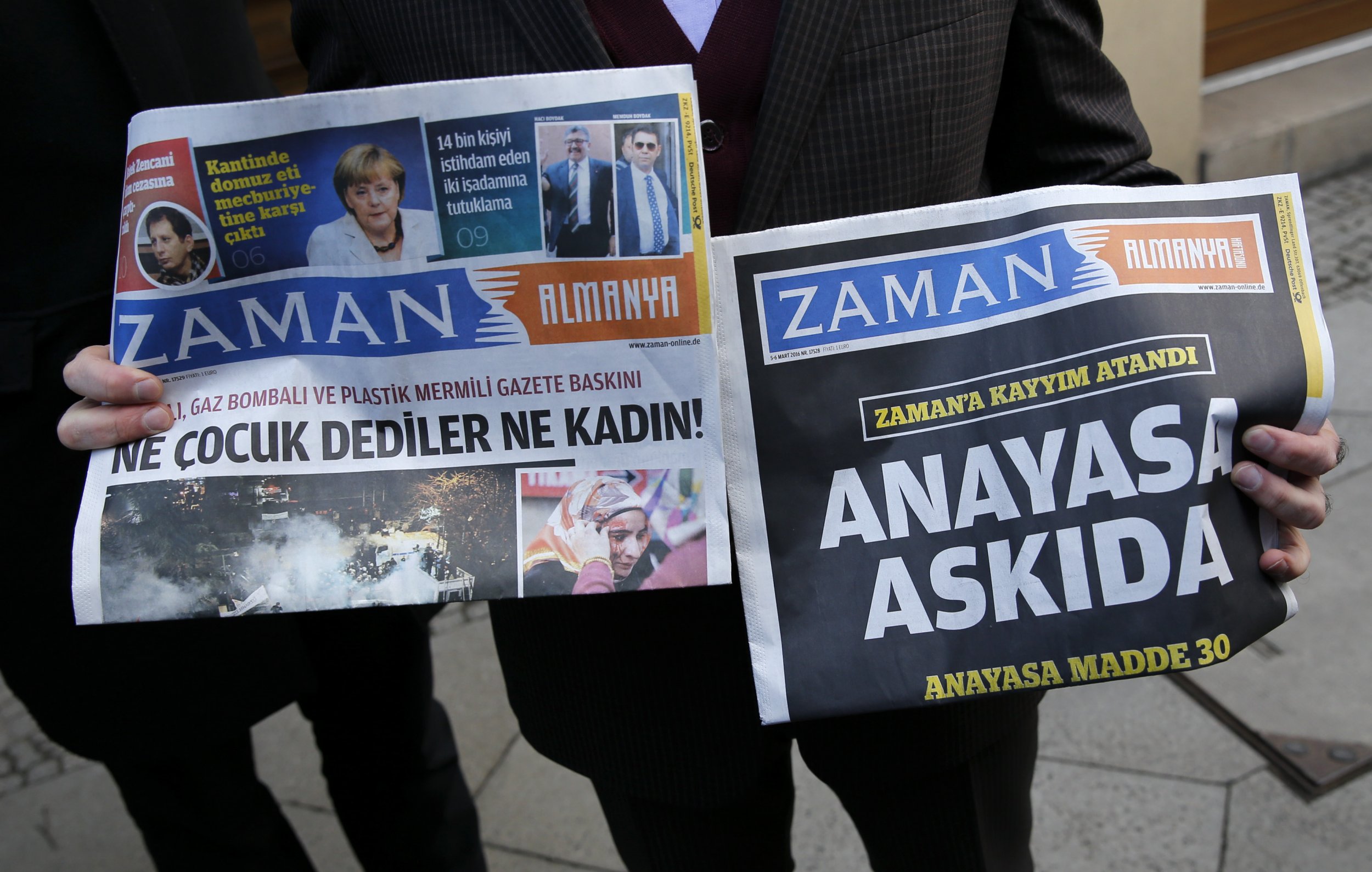
This article was first posted on the Carnegie Europe site.
During her six years as the representative on freedom of the media of the Organization for Security and Cooperation in Europe (OSCE), Dunja Mijatovic has seen an erosion of press freedom in many of the organization's 57 member states.
Look at what happened in Turkey on March 4. The police raided the offices of the Zaman newspaper, whose journalists had criticized Turkish President Recep Tayyep Erdogan's increasingly authoritarian policies.
The erosion of media freedom was described in a depressing assessment by Mijatovic, a feisty Bosnian who was born in Sarajevo, Bosnia-Herzegovina, and who knows from firsthand experience how war fuels propaganda and how countries in transition often pay lip service to press freedom.
As she prepares to leave office on March 10, Mijatovic pulled no punches as she explained to me why she believes media freedom is increasingly under threat and what can or should be done to counter such pressure. For Mijatovic, it boils down to democratic governments defending what they stand for.
They are certainly not doing that in Central Asia. There, the media are particularly vulnerable. In Kyrgyzstan, a country Mijatovic said was "once a shining example in the region in terms of the work we were doing," media freedom is in jeopardy.
As for Azerbaijan, President Ilham Aliyev has waged an unremitting campaign against independent journalists and independent nongovernmental organizations. Scores of activists are behind bars. "Many say the crackdown in Azerbaijan is related to the government's fear of another Maidan," Mijatovic said, referring to the pro-democracy movement that brought down Ukraine's former president Viktor Yanukovych, or maybe the falling price of oil.
Whatever the reason, she criticizes the response from the international community to such crackdowns. "For me and for others working on human rights, you need like-minded countries to echo what you are saying," she said. "There are people in prison for standing up for their rights. There are people being intimidated, beaten, killed, with no judicial investigation. It's not only in Azerbaijan. It's in many other states too."
Then there's the issue of media ownership that impinges on press freedom. In Russia, Ukraine and the Western Balkans the media have become a political tool for the elites and oligarchs. "You see how civil society in Russia has been severely weakened. The independent media are disappearing. But this should not be a sign for all of us just to shrug our shoulders. We have to deal with people who are willing to protect the profession," Mijatovic argued.
In Ukraine, as soon as Petro Poroshenko became president in 2014, Mijatovic raised with him the issue of media ownership. "Poroshenko said he was going to sell all his assets except Channel 5 TV. And I said to him the first thing he should get rid of was the television," Mijatovic recalled. He didn't. It rankles her. "We managed to help [Ukraine] a lot with changing legislation. But there's still impunity. Kiev is still not delivering when it comes to attacks on journalists," she added.
Closer to home, Mijatovic has kept up the pressure on Hungary and, more recently, on Poland, countries that fought to rid themselves of Communism but whose governments have now turned on the media.
But it is the Western Balkans that Mijatovic is particularly worried about. For her, the transitions there are far from complete. "Twenty years after the war, many things have been achieved. You could see a way forward. But it's sliding back again. There's stagnation," she said.
One reason is the legacy of the Yugoslav wars of the 1990s, which led to bloodshed and suffering. "In general, the whole region has the same sort of illness: trying to overcome the scars and bruises created during the war," Mijatovic explained. The other reason is a reluctance by leaders to accept democratic values. "They can change their T-shirts and call themselves democrats," she said.
She also cited the region's rampant corruption, the threats meted out to investigative journalists, and the way in which broadcasting has still to be radically overhauled.
"State television in the Western Balkans has not been transformed into a genuinely public-service broadcaster," Mijatovic said. "We are still fighting against impunity. The region has quite good laws, but when it comes to implementation, it is almost zero. It is all related to the lack of political will."
Mijatovic believes that the transitions in the Western Balkans will not be completed if there is no stick from the European Commission.
Leaving aside Europe's refugee crisis, which has the potential to destabilize the region, Mijatovic also said not enough international attention was being paid to the Western Balkans—either for lack of interest or because there were other, more pressing issues such as the conflicts in Syria or Ukraine.
"It's as if [the international community] were saying the Balkans is fine. But we are anything but fine," Mijatovic opined as she passes to her successor the many files related to the ever-growing attacks on media freedom in OSCE countries.
Judy Dempsey is a nonresident senior associate at Carnegie Europe and editor in chief of Strategic Europe.
Uncommon Knowledge
Newsweek is committed to challenging conventional wisdom and finding connections in the search for common ground.
Newsweek is committed to challenging conventional wisdom and finding connections in the search for common ground.
About the writer
To read how Newsweek uses AI as a newsroom tool, Click here.








